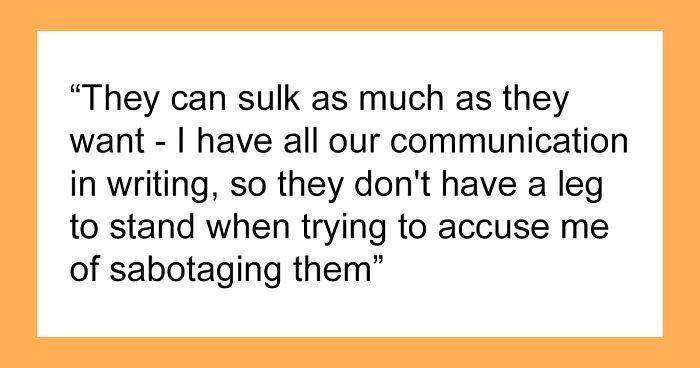
“Tough Luck, Kids”: Teacher Washes Her Hands Off Helping Students Meet The Deadline, They Don’t And They’re Not Happy
A few days ago, Redditor u/Rare-Cheesecake9701 shared a story with the platform’s ‘Malicious Compliance‘ community about her experience as a mentor for an IT program for children, and it goes to show that even the best intentions can go down the drain when met with uncooperative teenagers.
The mentor, who claims to be a well-respected professional in her area, signed up to teach the kids coding, but a group of high schoolers called her input distracting and asked her to stop messaging them. However, after she complied, they quickly realized that it was a mistake.
Image credits: Mizuno K (not the actual photo)
Image credits: Julia M Cameron (not the actual photo)
Image credits: twinsterphoto (not the actual photo)
Image credits: Rare-Cheesecake9701
Many believe that teachers are not just empty vessels through which students are educated but also play a crucial role in guiding them through their non-academic lives. That teachers are mentors, counselors, advocates, and pillars of support.
If you looked back at your past, you would probably remember a teacher who was virtually the only pillar that kept you or someone you knew from falling through the cracks. However, in this particular case, it wasn’t a school. And the Redditor wasn’t a teacher per se.
Plus, both teachers and students should strive for sophisticated and meaningful relationships with each other. It’s a two-way street that can’t exist on the sole efforts of just one party.
Image credits: RODNAE Productions (not the actual photo)
Adolescence is sort of an initiation into adulthood, and nowadays we can hear people saying that younger generations aren’t performing as well as the older ones. While this line of thinking is certainly up for debate, there might be at least some truth to it. Adam Omary, who is a Cognitive Psychology Ph.D. student at Harvard University and conducts research in the Affective Neuroscience & Development Laboratory under the mentorship of Dr. Leah Somerville, says that in many cultures across history, teenagers must prove their worth as contributing and valuable members of society through increased responsibility. But in WEIRD (Western, Educated, Industrialized, Rich, and Democratic) societies, the teenage years are predominantly spent in school, and teens no longer play as active a role in the workforce or in childrearing as they have historically and cross-culturally.
This doesn’t automatically mean that we stopped viewing our teenagers as adults-in-training or potentially valuable members of society, but our focus has largely shifted to what we can do for our youth, rather than what our youth can do for us. While this philosophy is largely motivated by care, Omary thinks it has the unintended consequence of removing agency from teenagers.
Image credits: Max Fischer (not the actual photo)
Developmental psychologist Jean Piaget recognized the need for autonomy during adolescence and argued further that the teenage years are characterized by a “Messianic” stage during which the adolescent “not only tries to adapt his ego to the social environment but, just as emphatically, tries to adjust the environment to his ego. In other words, when he begins to think about the society in which he is looking for a place, he has to think about his own future activity and about how he himself might transform this society.”
So while the students failed the program, this experience might still teach them a valuable lesson.
After reading the story, some people shared their similar experiences
And the post has received a lot of reactions
Some folks had additional questions for the author of the post and she happily answered them
Explore more of these tags
If these almost-adults live in the U.S., and have this big a problem with meeting April 15th deadlines, I have bad news for them...
That was my thought too! Although since the pandemic it's been 4/18. I only know this bc my friend who always waits until 11 PM on 4/14 was pumped to put it off until 4/17.
Load More Replies...I love serious treatment. They need to learn that the can speak and ask for whatever they like, but that also goes along with taking responsibility. Cold, no bluff, serious rejection of something valuable is a valuable lesson. Hopefully they'll learn something from this.
If these almost-adults live in the U.S., and have this big a problem with meeting April 15th deadlines, I have bad news for them...
That was my thought too! Although since the pandemic it's been 4/18. I only know this bc my friend who always waits until 11 PM on 4/14 was pumped to put it off until 4/17.
Load More Replies...I love serious treatment. They need to learn that the can speak and ask for whatever they like, but that also goes along with taking responsibility. Cold, no bluff, serious rejection of something valuable is a valuable lesson. Hopefully they'll learn something from this.

 Dark Mode
Dark Mode 

 No fees, cancel anytime
No fees, cancel anytime 








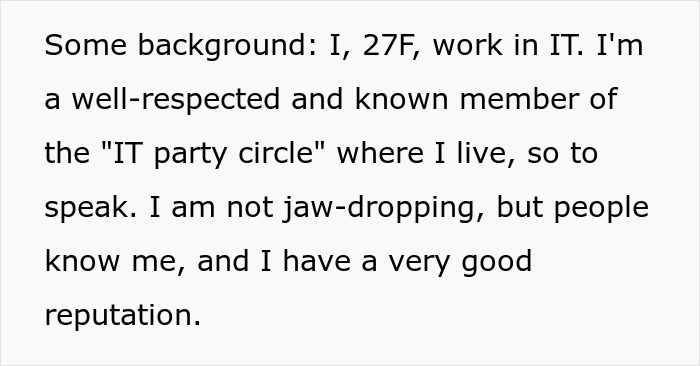
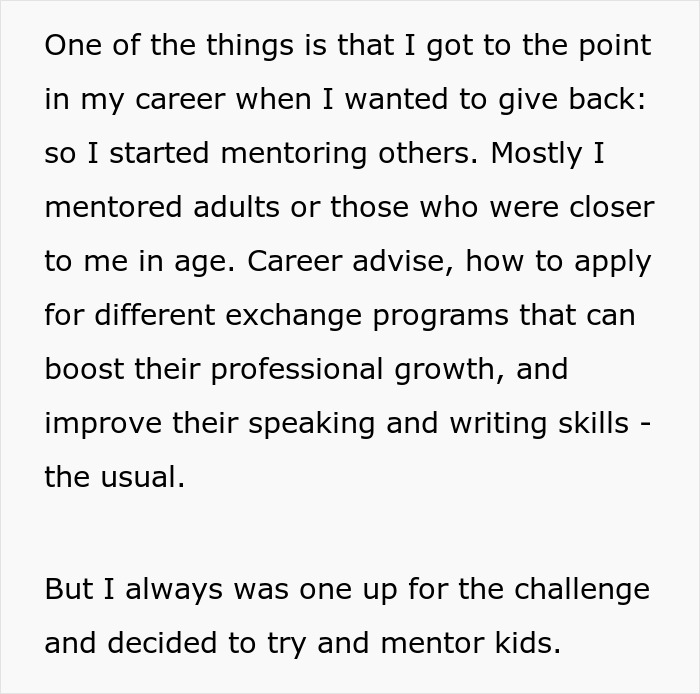
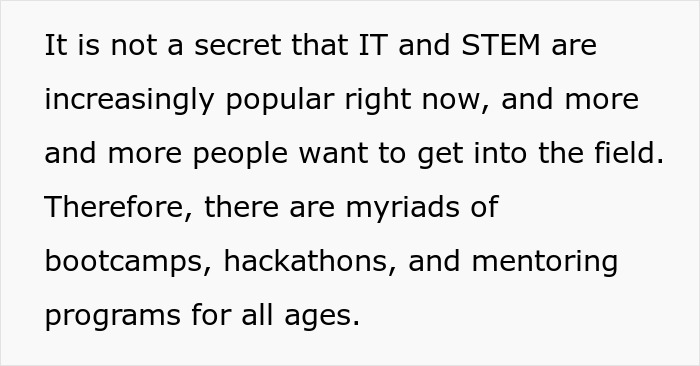
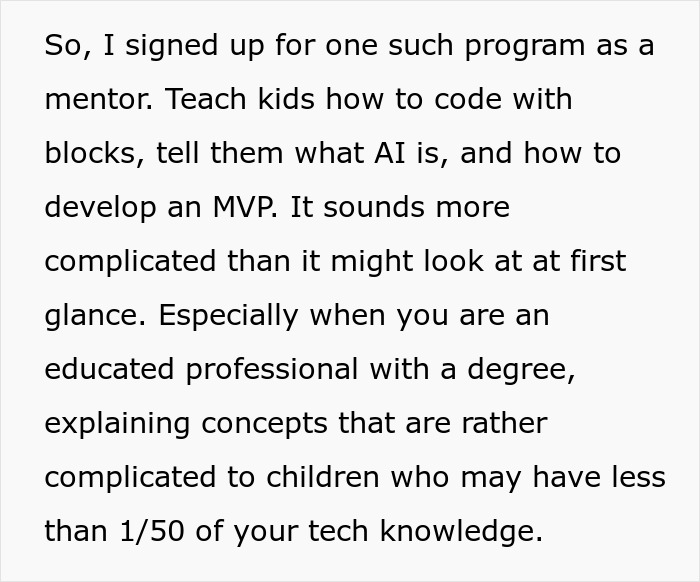
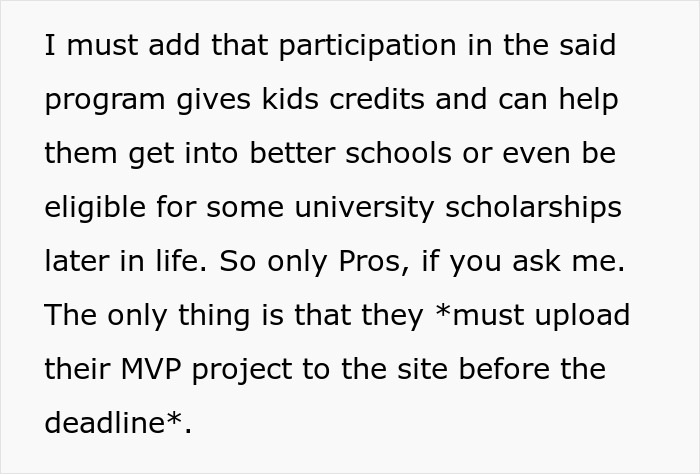
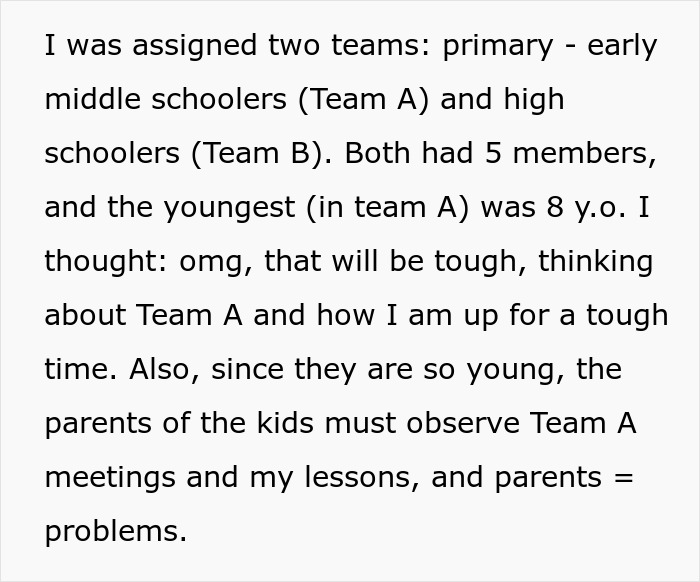

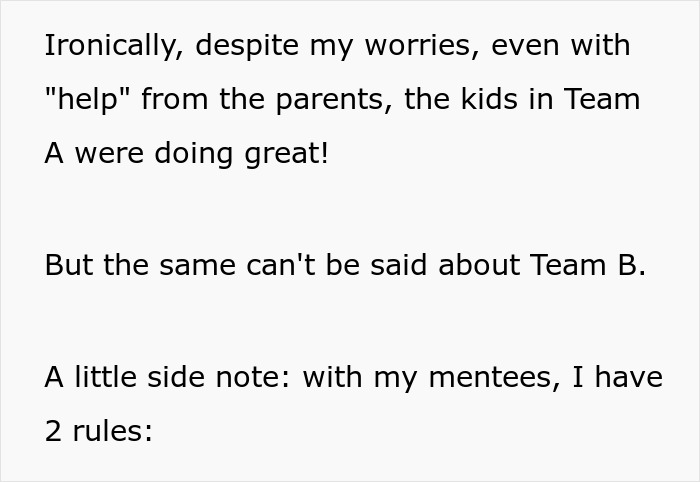
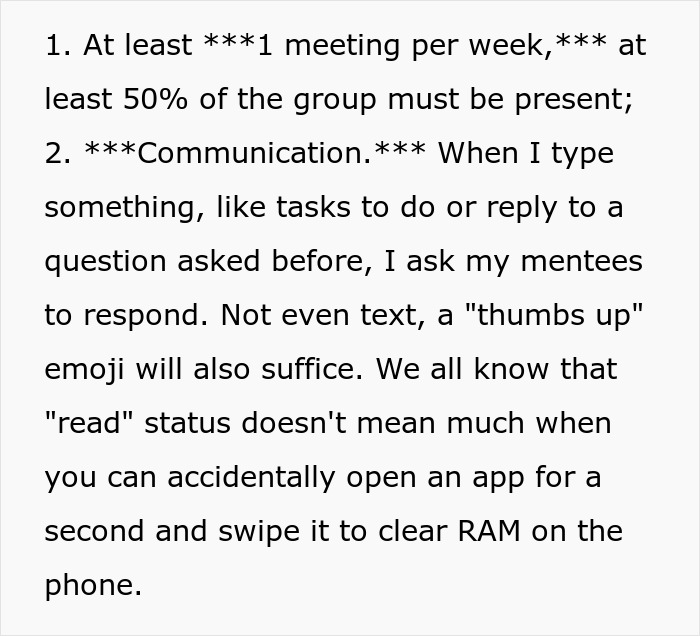
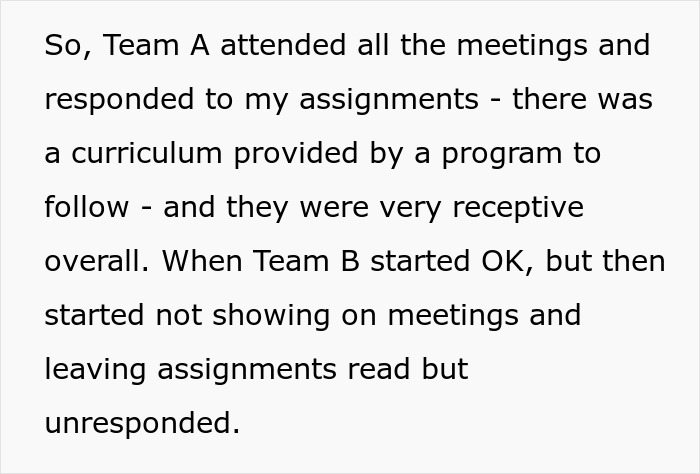
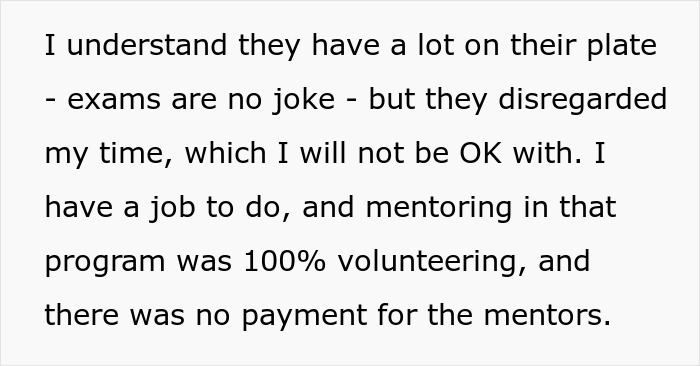
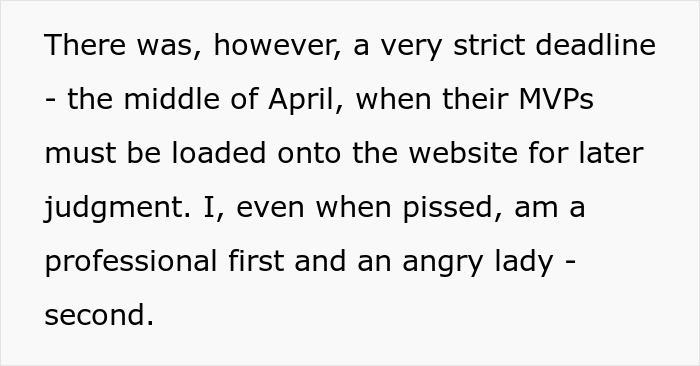
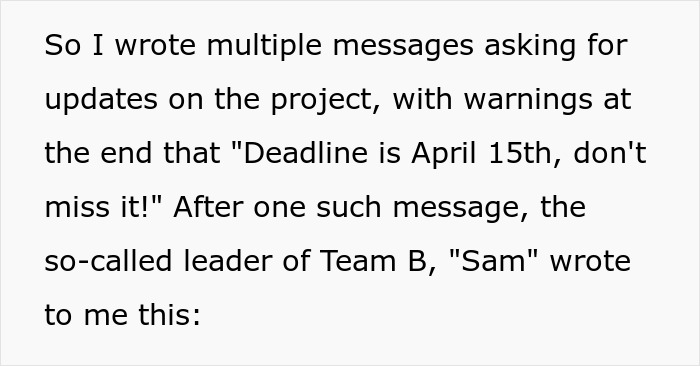
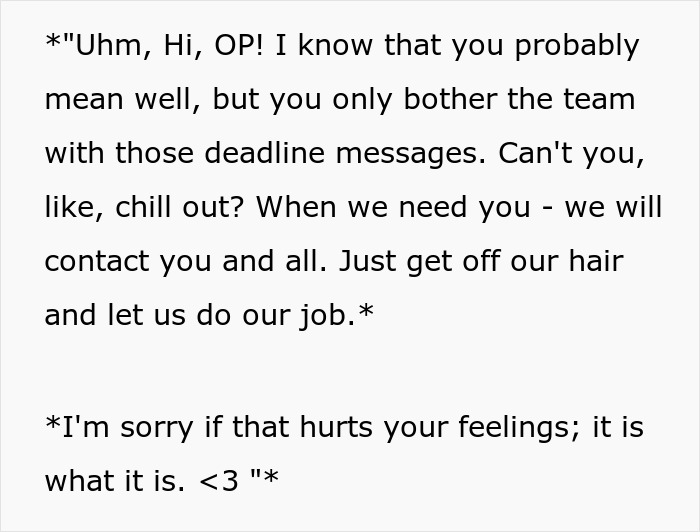



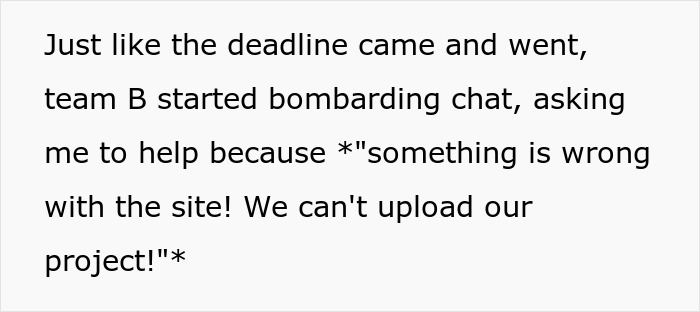

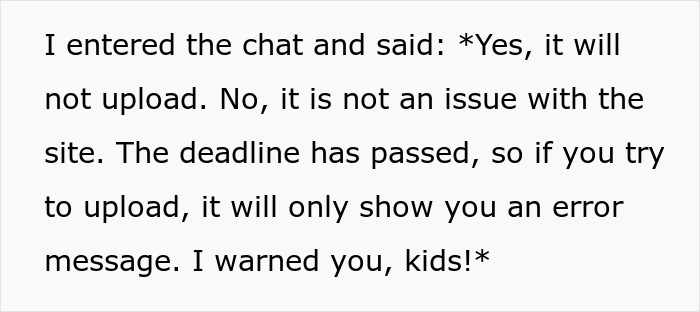
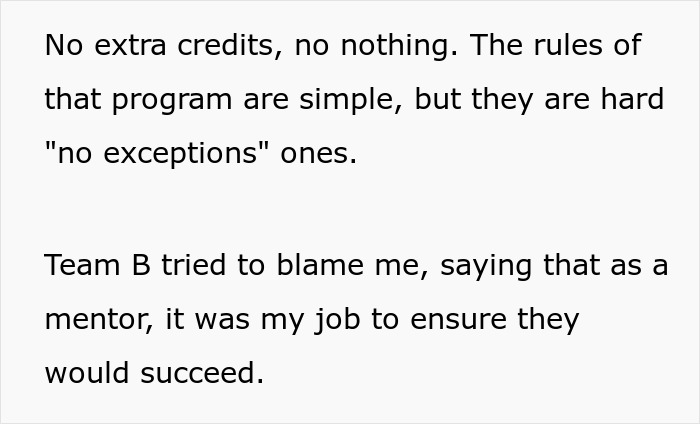
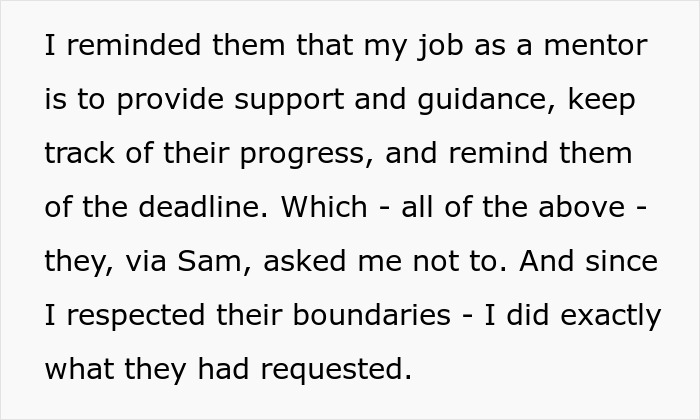
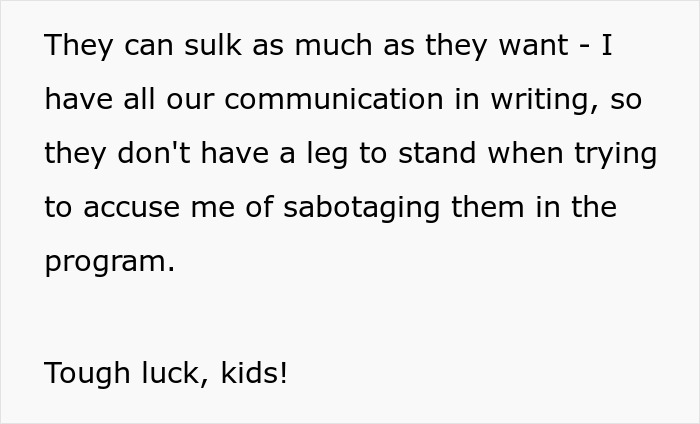


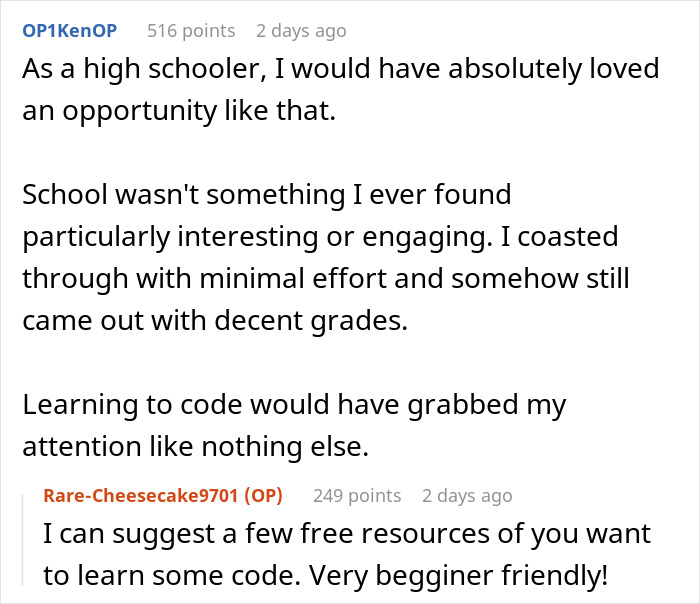
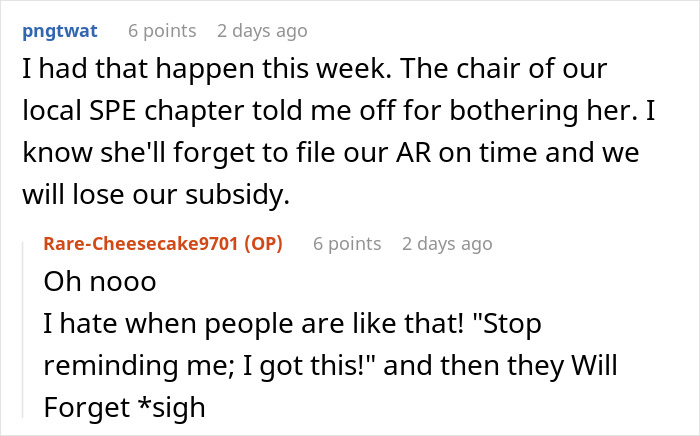

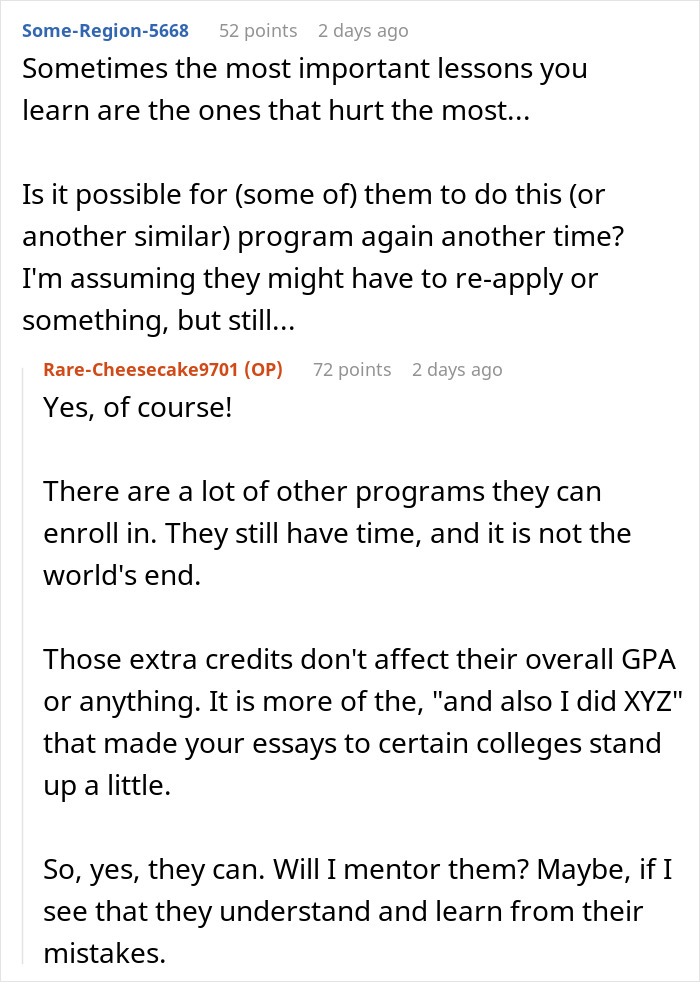
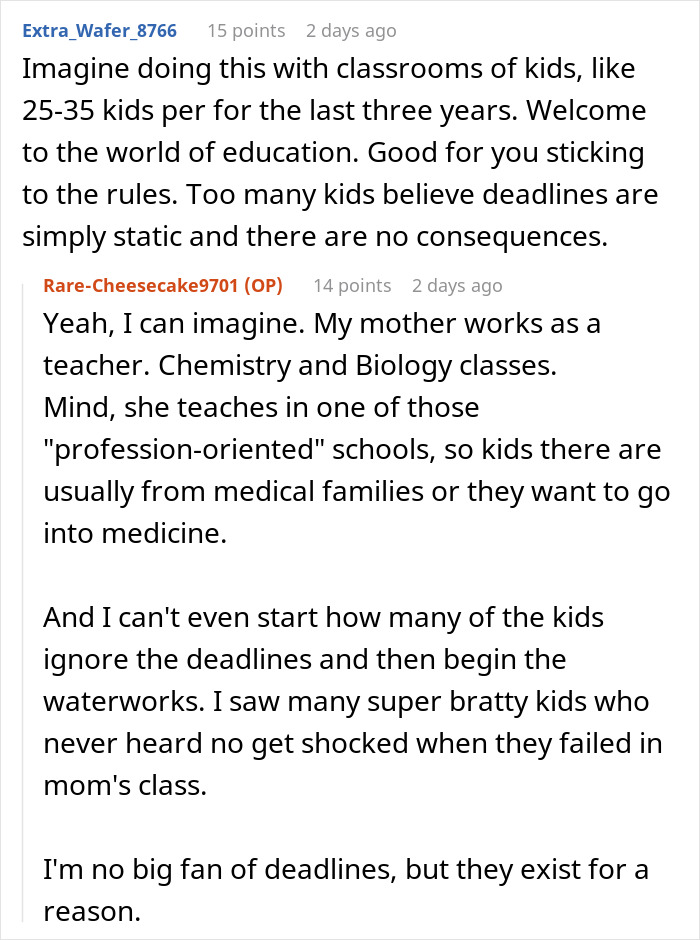
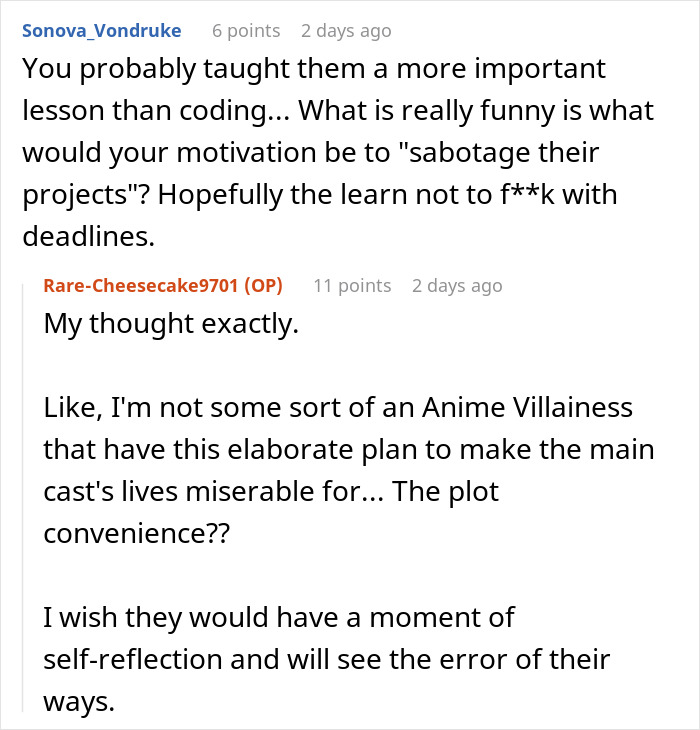
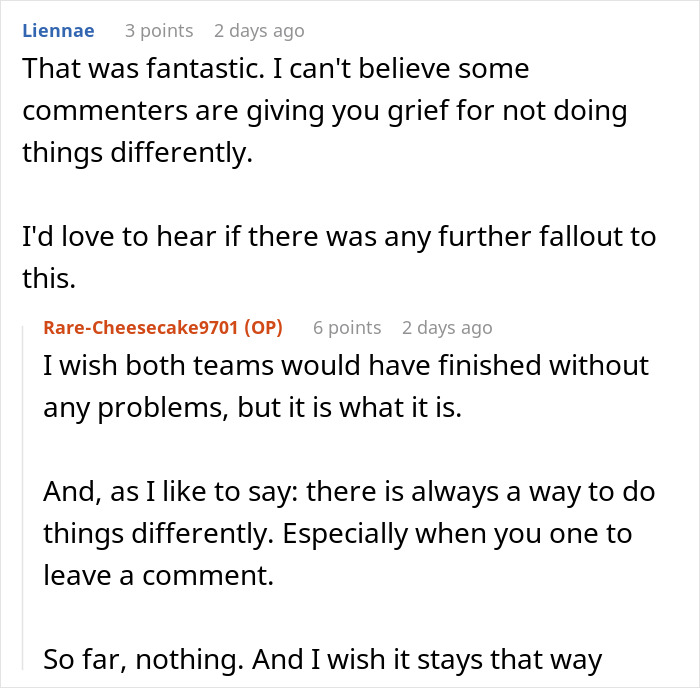
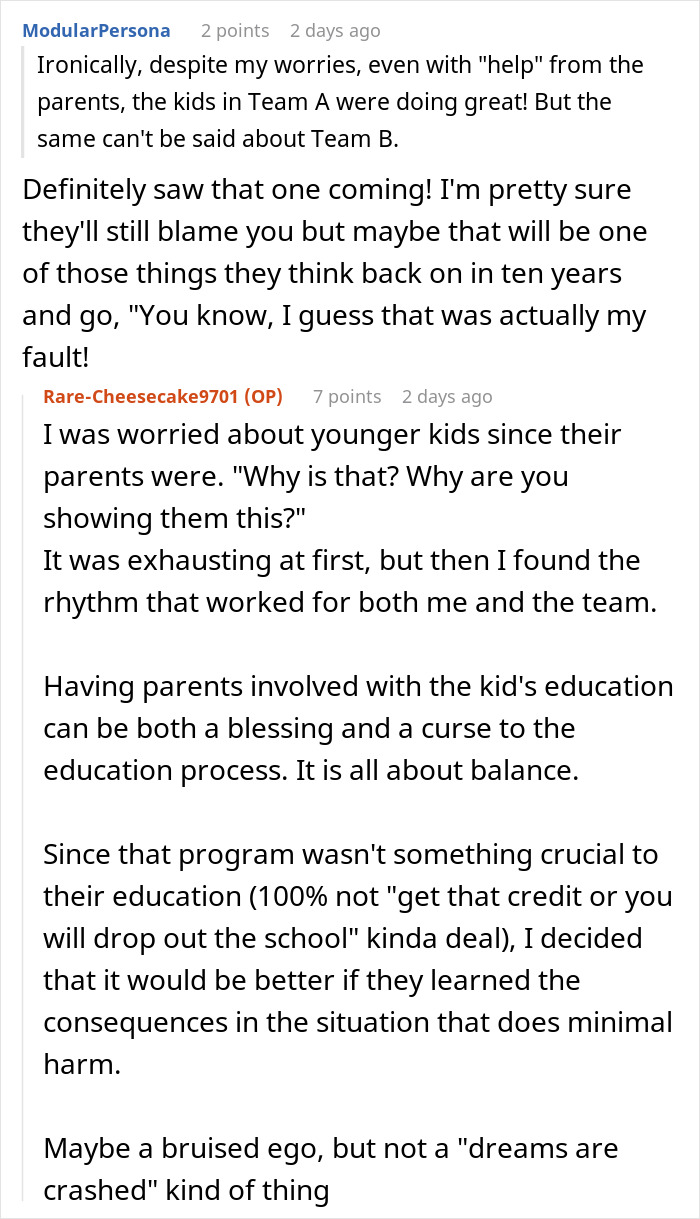

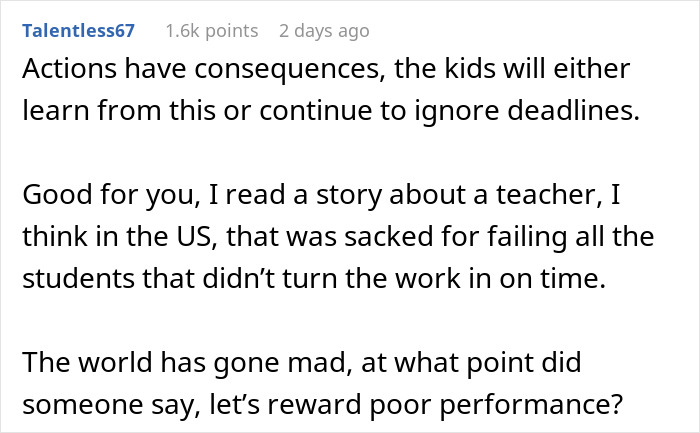


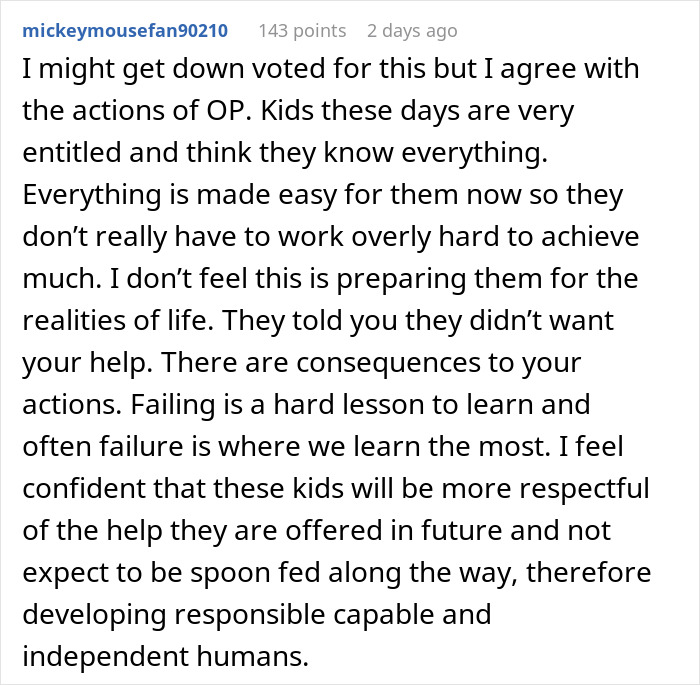
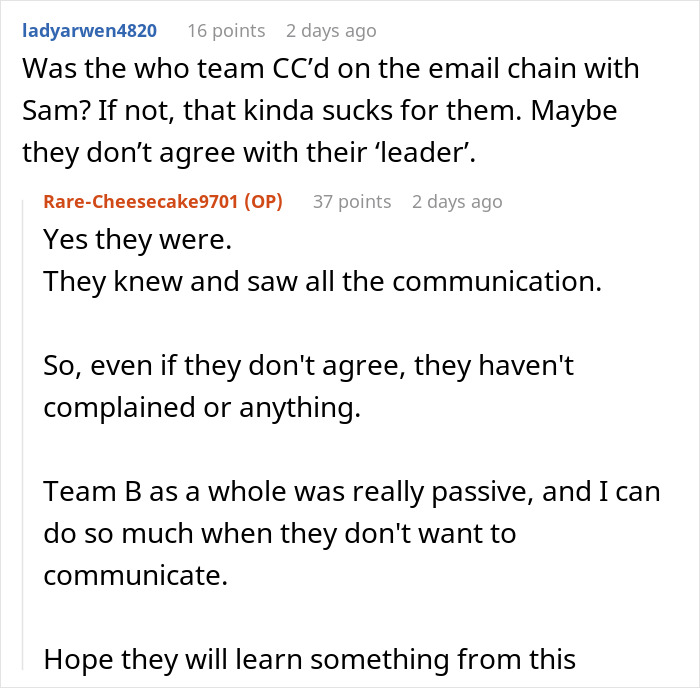
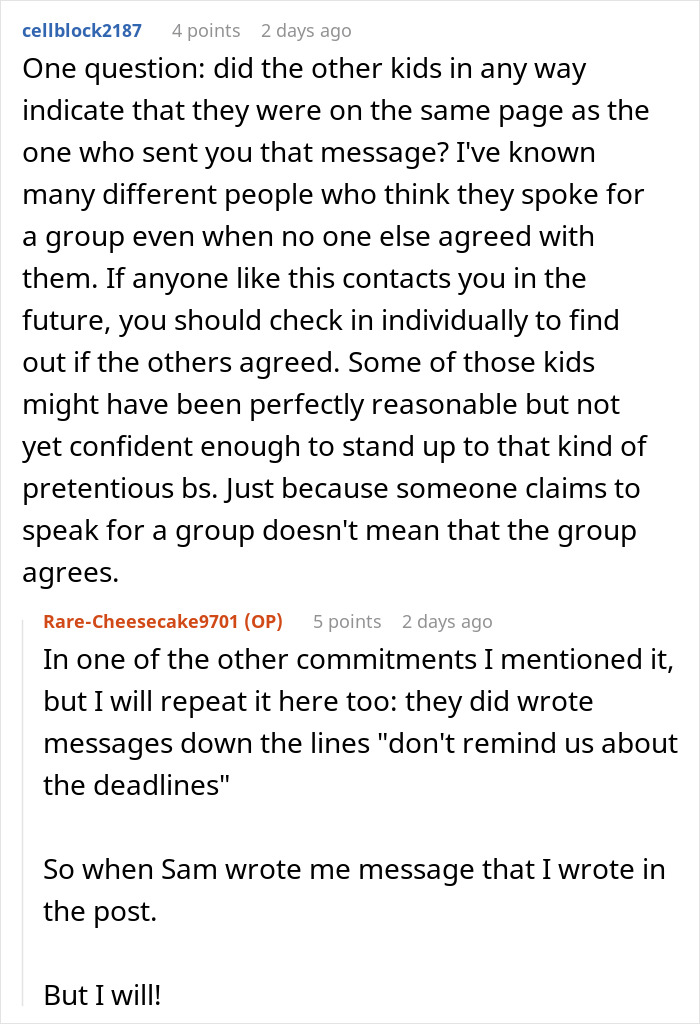
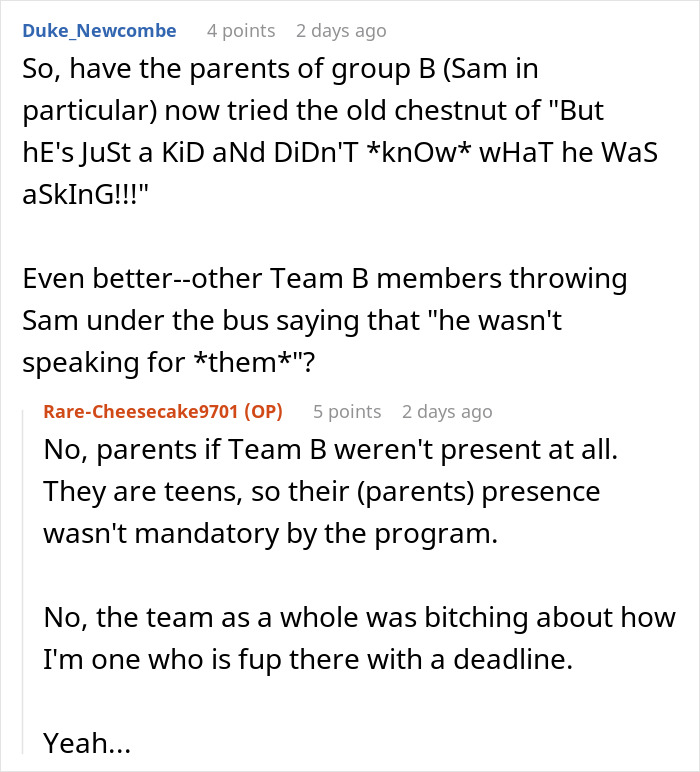









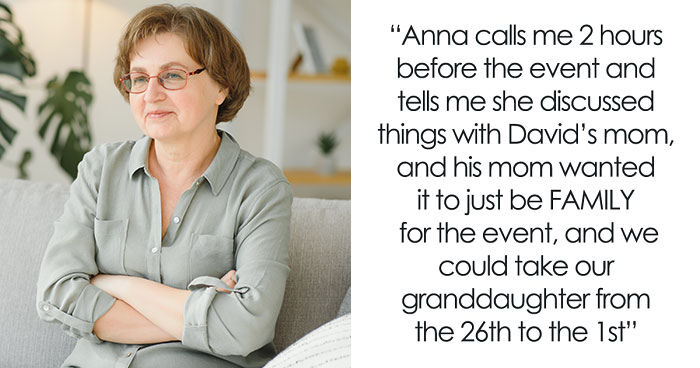


































72
24